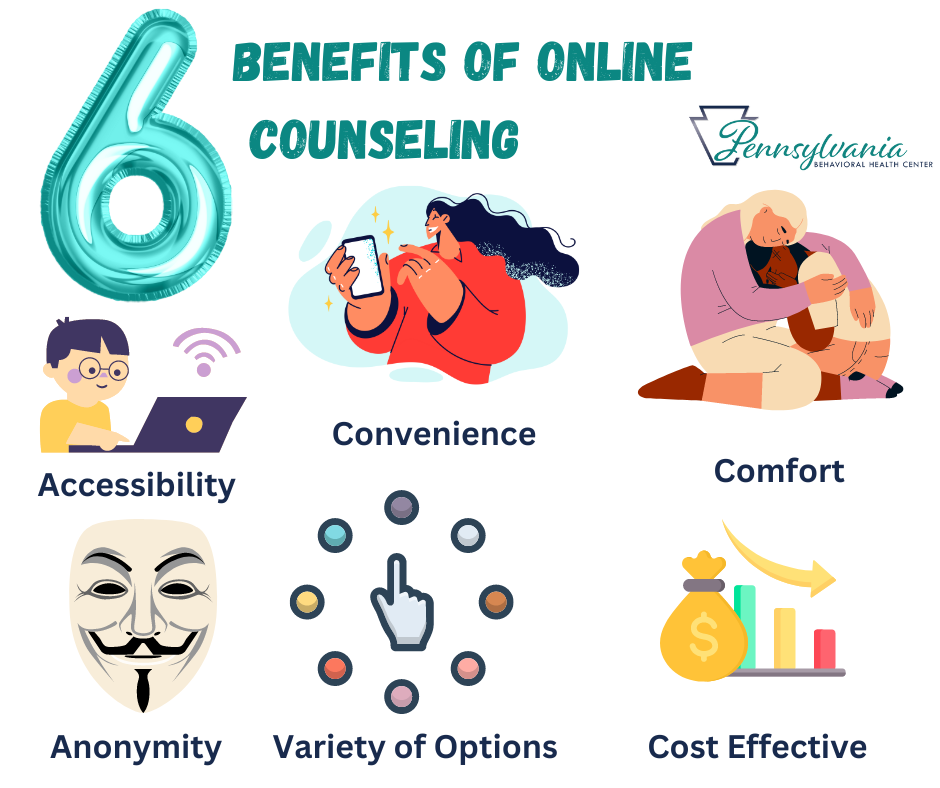Individual Therapy For Teens: where growth begins
Wiki Article
Discovering the Advantages of Psychological Therapy for Teenage Well-Being and Growth
Mental treatment plays an essential role in the well-being and growth of teens. Teenage years is a tumultuous period marked by social and emotional challenges. Therapy provides an organized atmosphere for teens to verbalize their sensations and face their battles. It outfits them with crucial tools for resilience and communication. As they navigate this developmental stage, the impact of treatment can be profound. What specific advantages can arise from such support throughout these developmental years?
Understanding the Teen Mind: Stress and challenges
As teenagers navigate the complexities of their developing phase, they encounter numerous challenges and pressures that can considerably influence their psychological wellness. This duration is marked by considerable physical, psychological, and social adjustments, which can generate sensations of complication and unpredictability. Peer impact escalates, usually leading to a battle for approval and identification. Academic expectations can create additional stress, as the stress to succeed installs in a significantly affordable atmosphere.Additionally, the development of social media sites presents a brand-new layer of intricacy, where comparisons to curated online personalities can aggravate sensations of insufficiency and anxiety. These variables can cause emotional distress, consisting of stress and anxiety, depression, and reduced self-worth. Comprehending these challenges is essential for parents, teachers, and mental wellness professionals, as it provides understanding into the adolescent experience and highlights the requirement for supportive treatments to cultivate resilience and wellness during this crucial developmental phase.
Developing a Safe Room for Expression
Creating a safe area for expression is vital for teenagers navigating their tumultuous developmental stage. In restorative setups, this setting fosters open discussion, permitting teenagers to communicate their sensations without fear of judgment. Such spaces allow them to discover their thoughts and emotions, which is crucial for understanding their identifications and experiences.When teenagers really feel secure, they are extra most likely to share their struggles, consisting of anxiety, anxiety, or social problems. This open communication can lead to deeper understandings and facilitate personal growth.
Furthermore, a secure space motivates creative thinking and self-reflection, giving teens the freedom to share themselves via numerous electrical outlets, such as art or writing. Establishing trust between the specialist and the teenage is vital, as it underpins the performance of the healing procedure. Eventually, producing a safe space for expression serves as a foundation for psychological recovery and individual growth throughout these developmental years.
Establishing Coping Approaches and Strength

Specialists commonly present strategies such as mindfulness, journaling, and problem-solving abilities, allowing teens to manage their responses better. In addition, by engaging in role-play circumstances, they practice how to manage tough scenarios, strengthening their self-confidence. Gradually, these skills promote a feeling of agency, outfitting teens with the devices to navigate life's unpredictabilities. The advancement of strength not only aids in conquering immediate obstacles however also prepares for healthier emotional reactions in adulthood, inevitably adding to lifelong well-being.
Enhancing Communication Skills
Effective interaction skills are necessary for young adults as they browse complex social landscapes. Mental therapy plays an essential function in improving these abilities, enabling adolescents to share their emotions and thoughts a lot more clearly. With directed sessions, specialists urge teenagers to verbalize their feelings, facilitating better understanding in peer communications and household dynamics.In addition, therapy provides a safe room for exercising active listening, compassion, and assertiveness. These abilities encourage teens to participate in meaningful conversations, willpower problems, and construct more powerful relationships. As they discover to interact properly, they also get self-confidence in their capability to advocate for themselves and their demands.
In addition, enhanced communication abilities add to psychological intelligence, permitting teenagers to respond and acknowledge to the emotions of others. This all natural growth fosters an encouraging atmosphere, inevitably promoting general health and social integration. Through psychological treatment, young adults can cultivate these crucial abilities for a healthier social experience.
Fostering Personal Growth and Self-Discovery
Fostering personal growth and self-discovery in young adults involves a multifaceted method that motivates understanding of personal identification. This procedure likewise highlights the significance of building durability skills and improving emotional recognition. With each other, these aspects develop a structure for much healthier, a lot more confident people as they navigate their formative years.Understanding Individual Identification
Just how do teens navigate the facility landscape of individual identity as they strive for self-discovery and development? Throughout this developmental duration, they grapple with different impacts, including peers, household, and societal assumptions. Psychological treatment can work Individual Therapy Toronto as an important tool, supplying a risk-free area for exploration and reflection. Through directed conversations, young adults can express their sensations and ideas, allowing them to comprehend their wishes, ideas, and worths. This process fosters a much deeper recognition of their special identity, empowering them to make enlightened options and create a feeling of purpose. As they involve in self-discovery, they discover to embrace their originality and navigate challenges with better clearness, ultimately boosting their overall health and personal development.Building Resilience Skills

Enhancing Emotional Awareness
Enhancing psychological understanding is important for teens navigating the complexities of adolescence, as it allows them to recognize and recognize their sensations better. By participating in mental treatment, teens find out to acknowledge their emotional feedbacks and the triggers behind them. This process cultivates personal growth and self-discovery, allowing them to express their emotions and handle difficulties more expertly. As teens establish emotional understanding, they cultivate compassion, improve partnerships, and improve interaction abilities. Additionally, this increased understanding aids in decision-making, assisting them browse social pressures and create a sense of identification. Ultimately, promoting psychological understanding via therapy can cause much healthier coping mechanisms and a much more well balanced emotional state, essential for flourishing throughout these developmental years.Building Healthy Relationships and Assistance Systems
While passing through the intricacies of teenage years, building healthy partnerships and assistance systems is important for teenagers. These links provide psychological security and a sense of belonging, important during this developing stage. Positive connections with peers, family, and advisors can improve self-esteem and strength, enabling teenagers to browse obstacles better.Psychological therapy plays a critical duty in cultivating these partnerships by equipping adolescents with communication and conflict-resolution skills. Through treatment, they discover to reveal their feelings, comprehend different perspectives, and establish borders, which are basic for keeping healthy and balanced communications.
Encouraging networks motivate teenagers to seek aid when needed, reducing seclusion and advertising mental health. When teens feel connected to their support group, they are most likely to engage in useful habits and make informed choices. Generally, the cultivation of healthy and balanced relationships and support group is critical in promoting teen well-being and individual development
Regularly Asked Questions
How Do I Discover a Certified Specialist for My Teenager?
To find a qualified therapist for a teenager, one should seek suggestions from doctor, study credentials on the internet, examine evaluations, and ascertain the specialist specializes in teenage concerns, cultivating an encouraging setting for development.What Are the Costs Associated With Mental Treatment for Teenagers?
The expenses related to mental therapy for teenagers vary widely, usually ranging from $50 to $250 per session. Insurance insurance coverage, moving range costs, and regional resources can affect cost and access for households seeking assistance.
Exactly How Typically Should Teenagers Attend Treatment Sessions?
Teenagers ought to ideally participate in therapy sessions weekly or biweekly, relying on private needs. Regular sessions can promote a safe area for expression, while enabling therapists to check progress and readjust methods effectively with time.Can Therapy Be Reliable for All Teenagers?
Therapy can be reliable for numerous teenagers, but specific results differ. Factors such as personal scenarios, visibility to the process, and the restorative strategy used all affect its performance for each teenage.What Should Parents Do During Their Young adult's Treatment Process?
Moms and dads need to actively sustain their young adult's therapy procedure by maintaining open interaction, respecting confidentiality, participating in sessions if welcomed, and urging their child's efforts (Individual Therapy For Teens). Understanding and perseverance are crucial as teenagers navigate their personal growth journeyPsychological therapy plays a pivotal duty in the wellness and growth of teens. By engaging in psychological therapy, teens discover to recognize their emotional responses and the triggers behind them. Psychological treatment plays a crucial role in promoting these connections by furnishing teenagers with communication and conflict-resolution abilities. Young adults need to preferably attend therapy sessions weekly or biweekly, depending on individual requirements. Moms and dads ought to proactively support their young adult's therapy procedure by maintaining open communication, valuing confidentiality, going to sessions if invited, and encouraging their child's efforts.
Report this wiki page